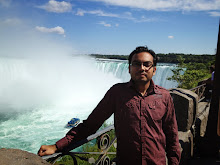The Islamic Republic of Afghanistan is a landlocked country in south-central Asia.[4] It is bordered by Pakistan in the south and east, Iran in the west, Turkmenistan, Uzbekistan and Tajikistan in the north, and China in the far northeast. In addition; India claims a border with Afghanistan at the eastern Wakhan corridor as part of its claim on the Gilgit-Baltistan region of Kashmir currently controlled by Pakistan.[5][6] The territories now comprising Afghanistan have been an ancient focal point of the Silk Road and human migration.[7] The land is at an important geostrategic location, connecting East, South, West and Central Asia,[8] and has been home to various peoples through the ages. The region has been a target of various invaders since antiquity, including Alexander the Great, the Mauryan Empire, Muslim armies, and Genghis Khan, and has served as a source from which many kingdoms, such as the Greco-Bactrians, Kushans, Samanids, Ghaznavids, Ghurids, Timurids, and many others have risen to form empires of their own.[9]
The political history of modern Afghanistan begins in the 18th century with the rise of the Pashtun tribes (known as Afghans in Persian language), when in 1709 the Hotaki dynasty established its rule in Kandahar and, more specifically, when Ahmad Shah Durrani created the Durrani Empire in 1747 which became the forerunner of modern Afghanistan.[10][11][12] Its capital was shifted in 1776 from Kandahar to Kabul and most of its territories ceded to neighboring empires by 1893. In the late 19th century, Afghanistan became a buffer state in "The Great Game" between the British and Russian empires.[13] On August 19, 1919, following the third Anglo-Afghan war, the nation regained controlled over its foreign affairs from the British.
Since the late 1970s Afghanistan has experienced a continuous state of civil war punctuated by US secret operation in 1979[14][15] and following 6 months later occupations in the forms of the 1979 Soviet invasion and the October 2001 US-led invasion that overthrew the Taliban government. In December 2001, the United Nations Security Council authorized the creation of an International Security Assistance Force (ISAF) to help maintain security and assist the Karzai administration. The country is being rebuilt slowly with support from the international community and dealing with Taliban insurgency.[16]
The political history of modern Afghanistan begins in the 18th century with the rise of the Pashtun tribes (known as Afghans in Persian language), when in 1709 the Hotaki dynasty established its rule in Kandahar and, more specifically, when Ahmad Shah Durrani created the Durrani Empire in 1747 which became the forerunner of modern Afghanistan.[10][11][12] Its capital was shifted in 1776 from Kandahar to Kabul and most of its territories ceded to neighboring empires by 1893. In the late 19th century, Afghanistan became a buffer state in "The Great Game" between the British and Russian empires.[13] On August 19, 1919, following the third Anglo-Afghan war, the nation regained controlled over its foreign affairs from the British.
Since the late 1970s Afghanistan has experienced a continuous state of civil war punctuated by US secret operation in 1979[14][15] and following 6 months later occupations in the forms of the 1979 Soviet invasion and the October 2001 US-led invasion that overthrew the Taliban government. In December 2001, the United Nations Security Council authorized the creation of an International Security Assistance Force (ISAF) to help maintain security and assist the Karzai administration. The country is being rebuilt slowly with support from the international community and dealing with Taliban insurgency.[16]

